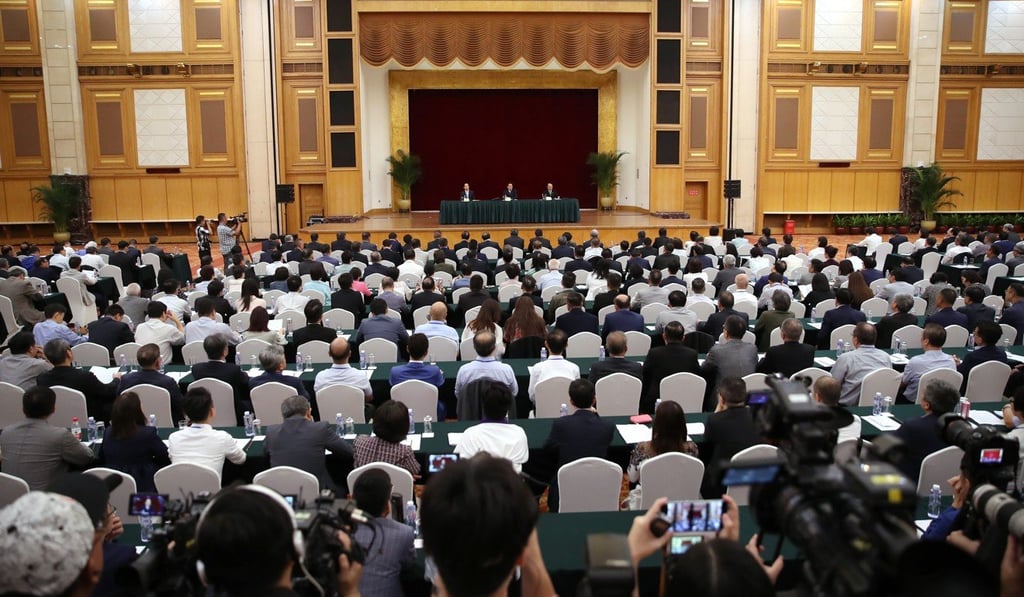Hong Kong protests have ‘obvious characteristics of colour revolution’, top Beijing official warns amid ‘worst crisis since 1997 handover’
- HKMAO chief Zhang Xiaoming says ending disturbance is top priority, but rejects protesters’ demands and warns Beijing won’t sit idly by if situation worsens
- Zhang referenced the ‘colour revolution’ that caused civil unrest in early 2000s Eastern Europe, and said China has option to deploy military

Beijing’s top official overseeing Hong Kong affairs has denounced the anti-government protests sweeping the city as bearing the “obvious characteristics of a colour revolution” – referring to Eastern European uprisings in the early 2000s – and warned that the worst crisis since the handover to Chinese sovereignty could not be resolved by bowing to protesters’ demands.
Zhang Xiaoming, director of the State Council’s Hong Kong and Macau Affairs Office (HKMAO), put the emphasis on ending the protest chaos and violence that began two months ago, triggered by the government’s now-abandoned extradition bill.
He also left open the possibility of the Hong Kong government setting up a commission of inquiry into the entire extradition bill saga, in response to citywide calls, but only after the protests ended.
“The most pressing and overriding task at present is to stop violence, end the chaos and restore order, so as to safeguard our homeland and prevent Hong Kong from sinking into an abyss,” Zhang said.

Laying out these priorities before 500 of Hong Kong’s top business leaders and pro-Beijing politicians at a seminar in neighbouring Shenzhen on Wednesday, he called on allies of Chief Executive Carrie Lam Cheng Yuet-ngor’s embattled government to do their part in safeguarding Hong Kong’s prosperity and stability.